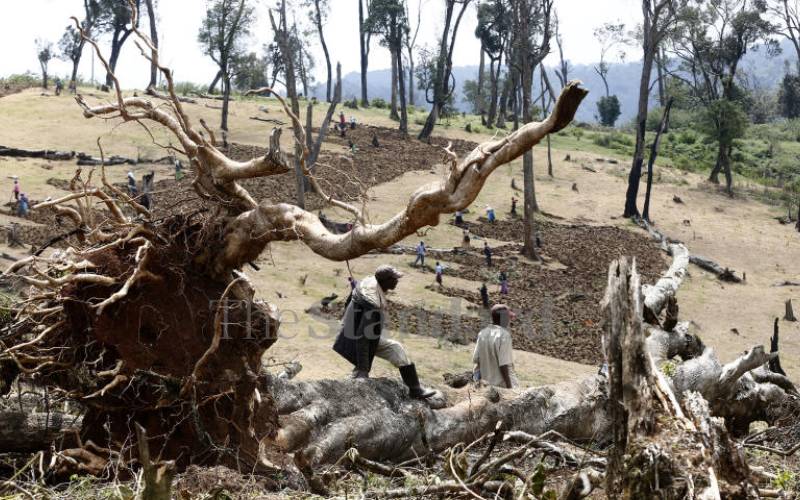×
The Standard e-Paper
Fearless, Trusted News

Cleared section of Mau Forest, Narok County. [Kipsang Joseph, Standard]
Biodiversity loss is one of the critical issues Africa faces, yet each of the natural resources has a part to play in human existence.






